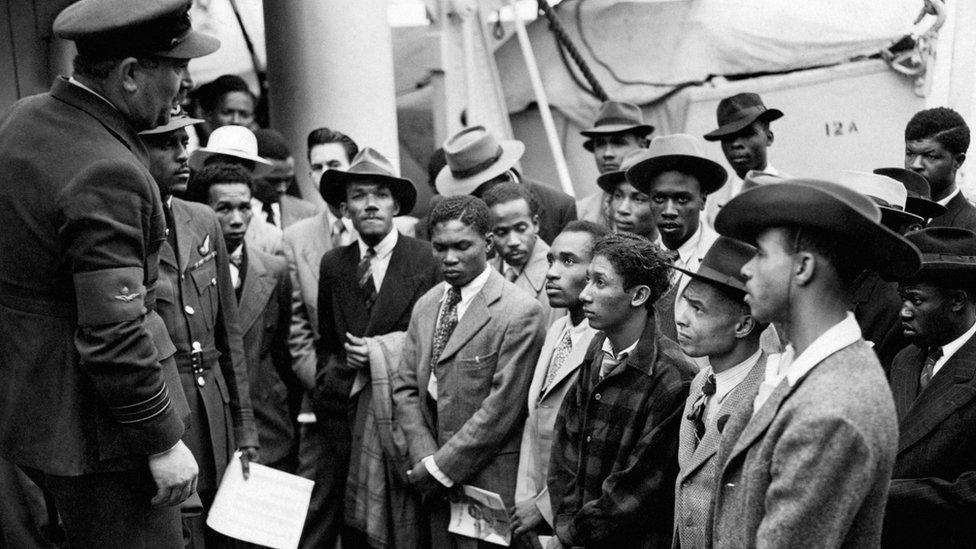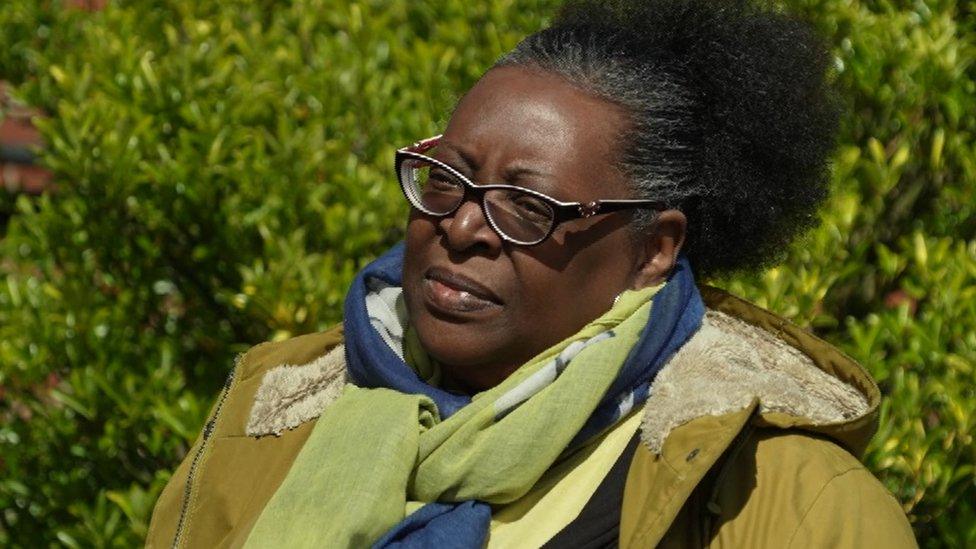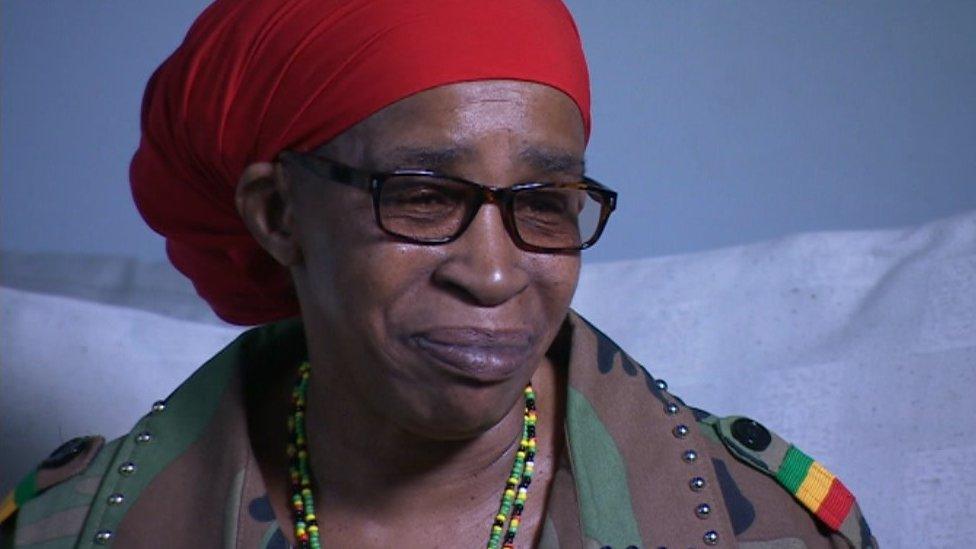Windrush compensation: £30m offered to victims so far, Home Office says
- Published

Nearly £30m has been offered in compensation to victims of the Windrush scandal, it has been confirmed, amid criticism over slow payments.
The Home Office said claims had sped up and that £20.4m has been paid to 687 people, with £9m offered to applicants.
Last week, the National Audit Office said the Home Office had yet to meet its aim of paying claimants quickly.
The watchdog added it expected between £60m and £260m will be paid in compensation to around 11,500 people.
Two years after compensation was announced in April 2019, the Home Office said payments have accelerated in recent months and more caseworkers are being recruited.
It followed an "overhaul" of the scheme last year when ministers raised the minimum payment from £250 to £10,000.
The Windrush scandal mainly affected UK citizens originally from the Caribbean.
They were granted indefinite leave to remain in 1971, but thousands were children who had travelled on their parents' passports.
Because of this, many were unable to prove they had the right to live in the country when "hostile environment" immigration policies - demanding the showing of documentation - began in 2012, under then Home Secretary Theresa May.
Some Windrush migrants were wrongly detained or deported after the policy requiring documentation was introduced.
Many others found themselves caught up in legal limbo and say they lost their jobs or their homes as a direct or indirect result. Others were denied access to NHS treatment, pensions and benefits, even though they had paid national insurance for many years.
'Still waiting'
Glenda Caesar, a Windrush claimant and campaigner who has received her payment, said she knew four other people who have been waiting more than two years.
She said they had been told they were eligible but a figure had not been agreed.
In some cases, claimants are thought to be pursuing additional discretionary payments to cover lost pensions and have rejected their offers.
In others, she said, case workers kept asking for documentation - but when people provided papers they were not taken into consideration.
"We didn't ask to be put in this position," she said.
Some claimants have received an interim, or preliminary, payment, which the Home Office said were made due to uncertainty over how long cases could take to resolve.
Anthony Bryant said this applied to him and that he was given a £10,000 interim payment. He said he believed this approach was allowing the government to claim it had paid out before actually settling claims.
"Most of the people I know are still waiting," he said. Checks on paperwork were the main reason for the delay.
"You have to drag them out. It's taken so long. Surely the government know us, what are they waiting for?"
"You're on hold, your life is on hold, nothing is resolved," he added.
The Home Office accepted some of the payments so far were for preliminary amounts, but others were final settlements.
'Quicker payouts'
The National Audit Office report said that the Home Office had underestimated the amount of time it would take to process each application and the scheme was rolled out before it was ready.
However, the government said it was picking up the pace of payments, following the decision of Home Secretary Priti Patel in December to review how the compensation scheme worked.
Ms Patel said: "I am absolutely committed to putting right the terrible injustices faced by the Windrush generation under successive governments.
"I will continue to work tirelessly to make sure that more money continues to be paid more quickly."
According to the Home Office, within six weeks of the changes being announced, more had been offered in compensation than during the first 19 months of the scheme.
- Published21 May 2021

- Published4 May 2021

- Published2 November 2020

- Published24 February 2021
